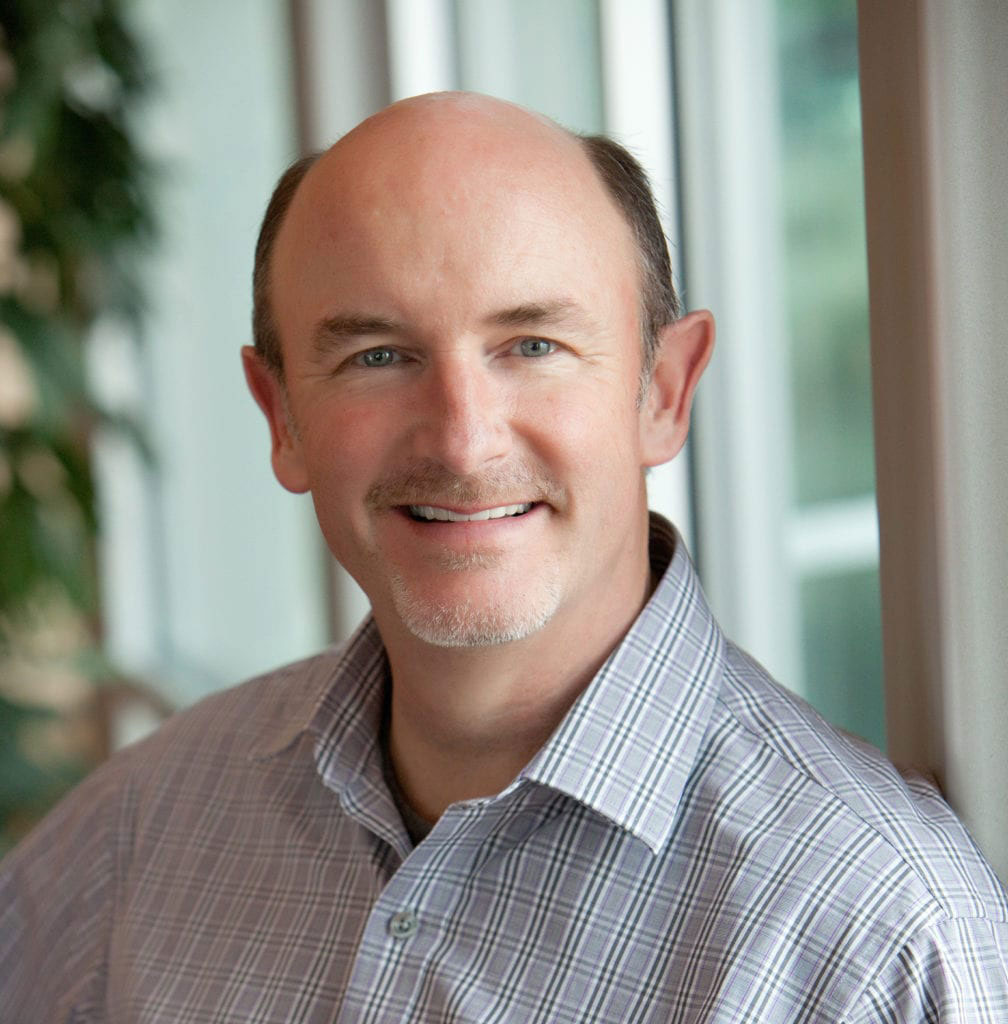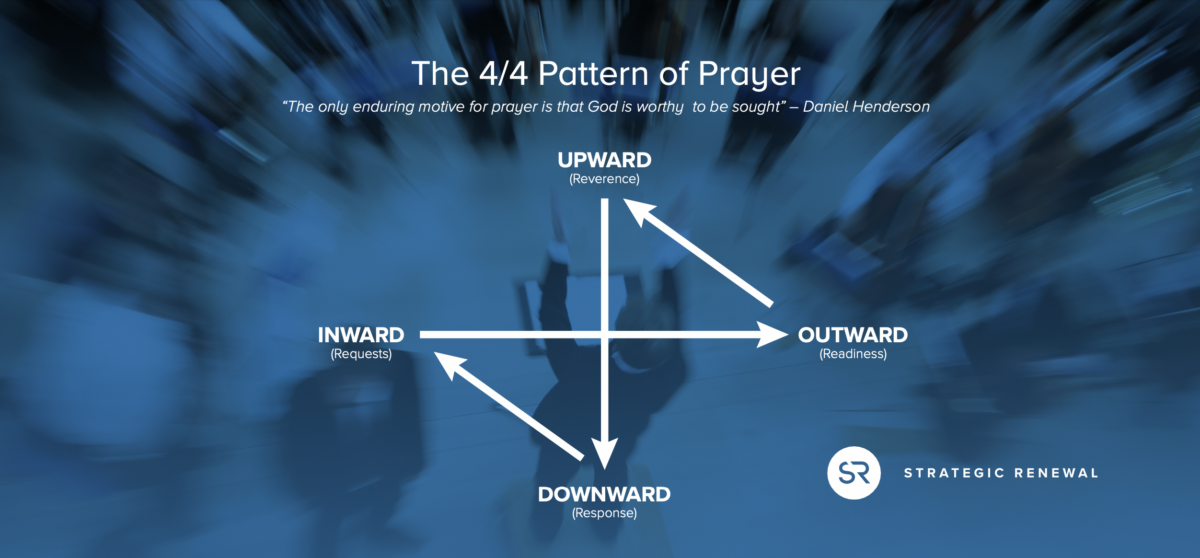Recently, I was privileged to lead a two-day prayer summit for some key denominational leaders at a Colorado retreat center. While these men collectively oversee thousands of churches that reach millions of believers across the globe, none had ever participated in a non-agenda, multi-day, community experience of Scripture-fed, Spirit-led, worship-based prayer.
In summary, the days we shared were personally transformational, collectively unifying, and missionally clarifying. As we reflected on the impact of those two short days, three key ingredients seemed absolutely core to this powerful experience. We also recognized that the world, the flesh, and the devil oppose each of these essential commitments. But without a resolute commitment of 1) Time, 2) Attention, and 3) Community, our efforts to learn to pray in life-transforming ways will always fall short. You could call these elements the three legs of a stool, with the stool being an extraordinary life of prayer.
The Commitment of Time
In his classic book, Spiritual Leadership, J. Oswald Sanders notes, “Mastering the art of prayer, like any other art, will take time, and the amount of time we allocate to it will be the true measure of our conception of its importance. To most, crowding duties are a reason for curtailing time spent in prayer.”[I]
“Mastering the art of prayer, like any other art, will take time, and the amount of time we allocate to it will be the true measure of our conception of its importance.” J. Oswald Sanders
The New Testament model is compelling. Certainly, Jesus’ prayer life serves as an inspiration. We see Him committing forty days with the Father prior to beginning His ministry (Matthew 4:2), praying all night before choosing the disciples (Luke 6:12), often praying alone (Mark 1:35; Luke 5:16) and with His disciples (Luke 11:1, 9:28). The early church was launched out of ten days of prayer, but too often we launch our day with less than ten minutes in communion with God. Paul noted at the outset of many of his letters that he (and his companions) prayed “always” for the churches.
If we are sincerely committed to make prayer important and influential in our lives, we must give concentrated and consistent time to this vital engagement with God. The prayer summit experience with these leaders was powerful because we were able to devote two days out of our very busy schedules to make it a priority.
The Commitment of Attention
I’ve heard Jim Cymbala say many times, “The main thing God asks for is our attention.” But today, our prayer lives suffer from Spiritual Attention Deficit Disorder. SADD indeed. In a world of sound bites, 30-second commercials, 15-second spots, and non-stop social media notifications, our brains are being remapped to expect rapid fire stimulation. Extended times of intense concentration and focus are becoming an endangered species.
I’ve heard Jim Cymbala say many times, “The main thing God asks for is our attention.” But today, our prayer lives suffer from Spiritual Attention Deficit Disorder. SADD indeed.
Today our time with God suffers from relentless exterior interruption and interior wandering. The devil is incessantly launching weapons of mass distraction upon our lives. The resolve of David, “For God alone my soul waits in silence” (Psalm 62:1), seems unattainable for our pressured and preoccupied souls.
What made our days in prayer at our retreat center so rich was the opportunity to shut down technology, slow our pace, detox our souls, and give God our extended and united attention.
The Commitment to Community
Every time I enjoy these experiences of extraordinary corporate prayer, I am reminded that transformation is not just something that occurs in private. It is also fueled by praying in community with others.
The church was birthed in a ten-day prayer meeting (Acts 1:14, 2:1). They coped with crisis and persecution together on their knees (Acts 4:24-31). As the church grew, the apostles refused to become embroiled in administrative problems because of their resolute desire to model prayer in their leadership team (Acts 6:4). Through united prayer, they trusted God for miraculous, divine interventions in times of extreme trouble (Acts 12:5-12). They received ministry direction through intense seasons of worshipful prayer (Acts 13:1 & 2).
If you were to ask, “Which is more important – private prayer or corporate prayer?” my answer will always be, “Yes!” It is like asking which leg is more crucial to walking. The right or the left?
In our Western culture, we have come to believe that it is more important to pray alone than with others. This is a symptom of our basic view of society. In his book The Connecting Church, Randy Frazee describes our culture of “individualism”. He notes that we are no longer born into a culture of community but a “way of life that makes the individual supreme or sovereign over everything.”[ii] Frazee documents this as a problem, especially for those born after World War II. He laments the impact on the church by observing that we have “all too often mirrored the culture by making Christianity an individual sport.”[iii]
Michael Griffiths reiterates this consideration when he writes, “In standard English, the second person singular ‘you’ and the second person plural ‘you’ are identical. Thus, New Testament Letters addressed to congregations are read (by us) as though they were addressed to the individuals. It is good and right that we should apply the Scriptures to ourselves personally, but it is unfortunate if we also apply the Scriptures individualistically and ignore the fact that the original intention was to instruct us not so much as individuals, but as whole communities of Christian people.”[iv]
In a fresh look at the model prayer (Matthew 6:9-13), Dr. Albert Mohler explains, “The word ‘our,’ at first glance, seems like an insignificant little pronoun. But Jesus is making a tremendously powerful theological point by beginning his prayer with the word ‘our.’ Jesus is reminding us that when we enter into a relationship with God we enter into a relationship with his people. When we are saved by Christ, we are saved into his body, the church.”
Mohler elaborates, “Do you notice what is stunningly absent? There is no first-person singular pronoun in the entire prayer! One of the besetting sins of evangelicalism is our obsession with individualism.” This obsession with individualism chronically besets us as evangelicals. The first-person singular pronoun reigns in our thinking. We tend to think about nearly everything (including the truths of God’s Word) only as they relate to me. This is why when Jesus teaches his disciples to pray, he emphasizes from the very outset that we are part of a corporate people called the church.” [v] (You can read more from Mohler on our website HERE.)
“Do you notice what is stunningly absent? There is no first-person singular pronoun in the entire prayer! One of the besetting sins of evangelicalism is our obsession with individualism.” Albert Mohler (on the Lord’s Prayer)
In my days spent with these denominational leaders we rediscovered the power of the right leg AND the left leg in igniting a new passion for the Lord.
Grace for All Three Commitments
Time, attention, and community are the three legs on the stool of a life engaged in Scripture-fed, Spirit-led, worship-based prayer. I urge you to ask God for the grace to embed these commitments deeply in your daily and weekly routines. Before you know it, prayer will be more delight than duty. Discovery will trump drudgery. You will never be the same.
Copyright © 2019 Daniel Henderson. All rights reserved.
(Find resources along this theme HERE)
[i] J. Oswald Sanders, Spiritual Leadership (Chicago: Moody Publishers; Reissue edition, 2017), p. 99.
[ii] Randy Frazee, The Connecting Church (Grand Rapids, MI: Zondervan, 2001), p. 43.
[iii] Ibid, p. 85.
[iv] Michael Griffiths, God’s Forgetful Pilgrims (London: InterVarsity Press, 1978), p. 24.
[v] https://albertmohler.com/2018/08/20/danger-christian-prayer/





